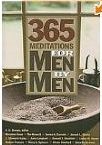6/28 So what is the ‘Emerging church movement?’
Part Three: The Emerging Church – a Continuum of Beliefs
 In this section of our series on the Counterfeit Church as a Challenge to Christian Foundations, we shall want to continue to discuss the sense of dissatisfaction people have expressed with the traditional church.
In this section of our series on the Counterfeit Church as a Challenge to Christian Foundations, we shall want to continue to discuss the sense of dissatisfaction people have expressed with the traditional church.
More and more Christians say the usual ways of “doing church” no longer resonate in a contemporary, postmodern culture. Seeking to fill the gap, a growing movement called “the emerging church”. They are seeking to develop new forms of worship and theological questioning for “a new cultural context”.
In this third part of our series on the challenges to the Christian message Jesus came to bring, we will define and explain the beliefs of this emerging movement.
The emerging church movement began several years ago as a conversation among evangelical Gen-X leaders who were alarmed at church dropout rates among 20s and 30s. About the same time, a pastor from Maryland, Brian McLaren, began writing about what he saw as a growing disillusionment with the way evangelical Christianity was being practiced.
Other events, such as the YouTube by Jefferson Bethke all combined to spread a growing awareness of the need ‘to do church differently’.
The term ‘Emerging church’ takes its name from the idea that as culture changes, a new church needs to emerge in response. It has become a response to various church leaders as they have faced the current era of ‘post-modernism’. Although term ‘Post-modernism’ began in the 1950’s, the church didn’t seek to conform to its tenets until the 1990’s.
We need to stop and define ‘post-modernism’ before we can make sense of what this movement is saying. According to the ‘apologeticsindex.org’, we can see that ‘postmodernism’ is the cultural worldview that now :….penetrates and owns our society”.
“This worldview deeply values the following: spirituality, pluralism, the experiential, relativity, altruism, community, creativity, the arts, globality, environmentalism, holism, political change and authenticity. In many ways we are aiming “…..to transition away from the ‘modern’ values of rationalism, science, dogmatism, individualism, pragmatism, capitalism, nationalism, ‘compartmentalism’ and veneered religiosity.” (http://www.apologeticsindex.org/p02.html)
The Emerging Church movement consists of a diverse group of people who identify with Christianity, but who feel that reaching the postmodern world requires us to radically reshape the church’s beliefs and practices to conform to postmodernism. Rejecting objective truth is the cornerstone of postmodernism. Rejecting objective truth is the cornerstone of postmodernism. In essence, “…..postmodern ideology declares an end to all ideology and all claims to truth”. (Author’s comments: Hhuuummm sounds a little out of balance?)
Eddie Gibbs and Ryan Bolger, in their book, Emerging Churches: Creating Christian Community in Postmodern Cultures (Baker Academic, 2005) define emerging in this way:
“Emerging churches are communities that practice the way of Jesus within postmodern cultures. This definition encompasses nine practices. Emerging churches (1) identify with the life of Jesus, (2) transform the secular realm, and (3) live highly communal lives. Because of these three activities, they (4) welcome the stranger, (5) serve with generosity, (6) participate as producers, (7) create as created beings, (8) lead as a body, and (9) take part in spiritual activities.”
Postmodernism is a term that has been dissected and broken down into various schemes of subcategories and there is not absolute unanimity among postmodern thinkers one of the most controversial and misunderstood movements today.
Emerging church philosophy comes into one term – the global reshaping of how to “do church” in postmodern culture. It has no central offices and it is as varied as evangelicalism itself. A growing number, especially among the emerging generation, believe that reason and truth are inherently political and subversive. That’s why they are often appearing so cynical. According to the voices in contemporary culture that shape “Generation X” thinking, claims to truth are clever disguises for the pernicious “will to power.”
Consequently, rather than dominating others with our “version of reality”, some emerging groups believe we should accept all beliefs as equally valid. Openness without the restraint of reason, and tolerance without moral appraisal are the new postmodern mandates.
(Used by permission – Adapted from: ‘Postmodernism Research resources for Christianity’s relevancy in today’s culture’ website, http://www.apologeticsindex.org/p02.html)
There are many interesting concepts in this adaptation from the original article that take some thinking and questioning. In our next post on Post-modern thinking and the church, we shall see what they hold as basic beliefs and how this will influence the next generation of Jesus Followers.
Susanne Fengler, Blog Author
www.christianfoundations.jesus-treeoflife.info
Tags: What is the Emerging Church?
Filed under: Challenges to the Christian Faith




Leave a Reply